
Hippocrates, widely regarded as said, "Let food be thy medicine and let medicine be thy food." He was spot on. What we eat and drink could very well be the primary indicator of whether a person develops cancer, overcomes it or avoids it entirely. And eating the right types of food if you do find yourself battling cancer or another chronic disease is vital.
Think of the body as a machine that needs quality energy sources to run smoothly. The proper types of satiating protein, low-glycemic carbohydrates and healthful fats are the fuels that "machine" needs to function optimally. "Dead foods" like processed cookies, crackers, and macaroni and cheese are full of empty calories, the wrong type of carbohydrates, and a laundry list of hard-to-read and potentially problematic ingredients.
On the other hand, real food-fresh, organic fruits and vegetables, meats (particularly organ meats), nuts and healthy oils can truly heal.
Let's take a closer look at the foods you should eat for energy and wellness and those you should avoid at all costs.
Why a low-carb, moderate-protein, high-fat diet is best
For good health in general, particularly if you are following an anti-cancer diet, you'll want to eat foods that are low in carbohydrates, moderate in protein and high in healthy fats. This way of eating is sometimes referred to as a ketogenic diet, and it completely changes the way your body uses energy.
Back in 2012, professor and researcher Dr Thomas Seyfried, PhD, published revolutionary findings that suggested cancer is a metabolic disease and, as such, has a metabolic cure. Expanding on the findings of Otto Warburg, who proposed that all cancers are a disease of energy metabolism, Dr Seyfried's studies revealed that lab mice with brain tumors responded remarkably well to fasting and calorie restriction.
Diese Geschichte stammt aus der April/May 2023-Ausgabe von What Doctors Don't Tell You Australia/NZ.
Starten Sie Ihre 7-tägige kostenlose Testversion von Magzter GOLD, um auf Tausende kuratierte Premium-Storys sowie über 8.000 Zeitschriften und Zeitungen zuzugreifen.
Bereits Abonnent ? Anmelden
Diese Geschichte stammt aus der April/May 2023-Ausgabe von What Doctors Don't Tell You Australia/NZ.
Starten Sie Ihre 7-tägige kostenlose Testversion von Magzter GOLD, um auf Tausende kuratierte Premium-Storys sowie über 8.000 Zeitschriften und Zeitungen zuzugreifen.
Bereits Abonnent? Anmelden
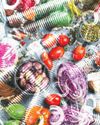
Metalhead
Could toxic heavy metals be making you ill? Here's how to spot the signs and symptoms, says Dr Leigh Erin Connealy, and your action plan for effective detox

Good bones
There's a lot of fearmongering when it comes to the risk of fractures in older women, says Marcelle Pick. Here's what you need to know and how to look after your bones naturally
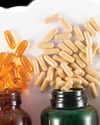
Supplements in the spotlight
Confused about supplements? Dr Jenny Goodman has the lowdown on why we need them, how to choose a top-quality product and the ingredients to avoid
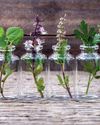
Essentially balanced
These essential oils can help you soothe stress, balance your hormones and feel like your best self again

An integrative approach to breast cancer
Blending the best of integrative medicine with the best of conventional medicine gives the greatest chance of healing breast cancer, says Dr Leigh Erin Connealy
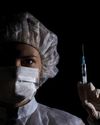
THE NEEDLE'S EDGE
An intriguing new theory says it's not what's in the jabs but how the needles are inserted that explains the rampant and varied Covid vaccine damage. Celeste McGovern investigates the Bolus Theory
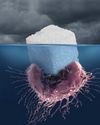
How sugar causes cancer
Amajor breakthrough in cancer research has discovered that sugar-usually from fast food-switches off our cancer-fighting genes

The illusion of the magician
Howrelative risk makes a drug seem effective when it’s not

Of pesticides and PMS
Detoxing from a hormone-disrupting herbicide, along with getting the right nutrition, was the answer to a patient’s debilitating PMS, says Dr Jenny Goodman

Not just a phase
Is your workout working against your hormones? Debra Atkinson explains why and how to exercise with your hormonal cycle for the best results